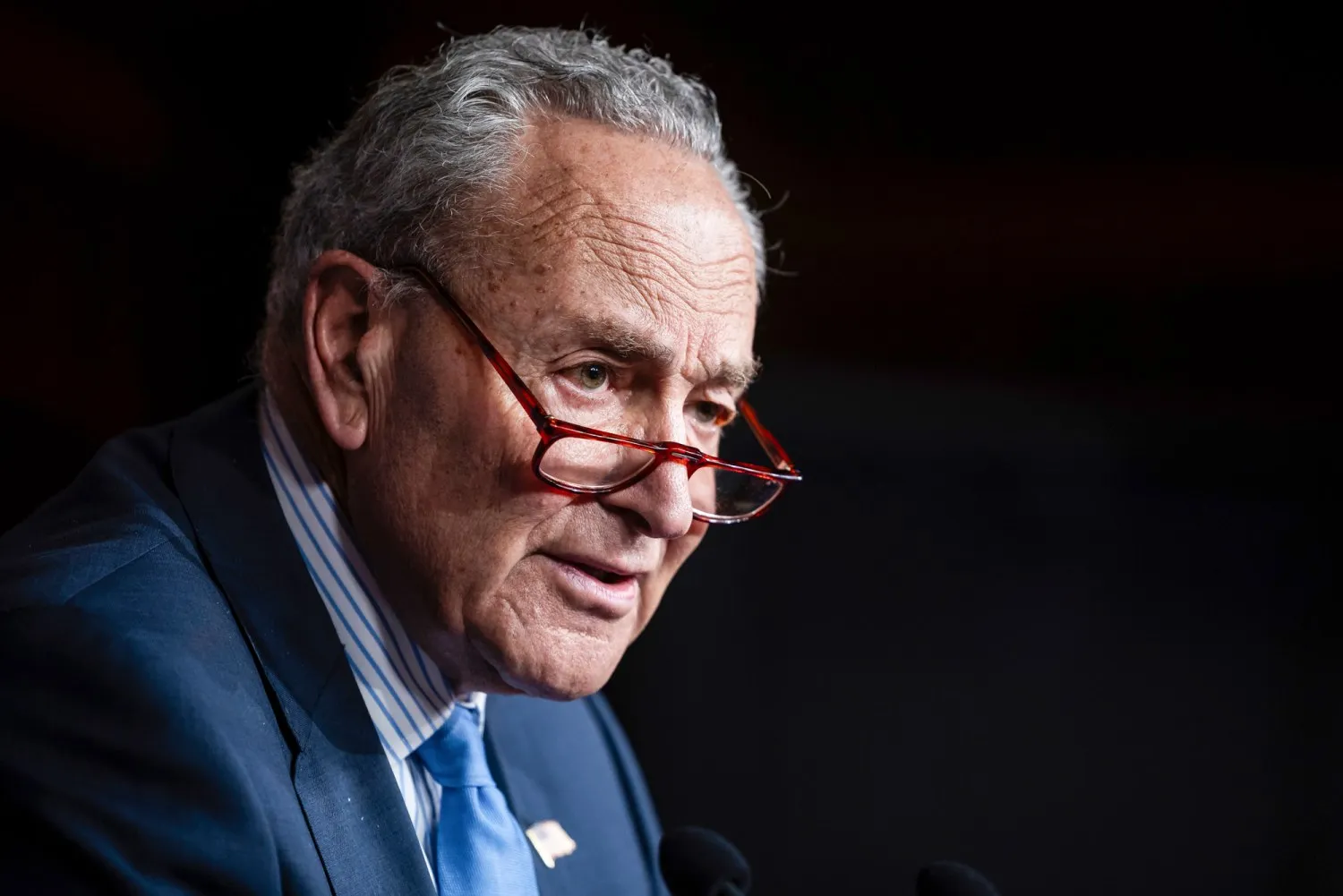Chuck Schumer Outlines a Bold 2025 Agenda Focused on Voting Rights and Abortion

CHICAGO — Voicing confidence that Vice President Kamala Harris and Democrats will win the 2024 election, Senate Majority Leader Chuck Schumer said he’s eyeing changes to the 60-vote filibuster rule to pass a pair of major bills that would expand voting rights nationwide. Schumer outlined a path for Democrats to change the Senate rules that requires holding 50 of their 51 seats. The party expects to lose Sen. Joe Manchin's seat in West Virginia but hopes to protect incumbents including Sens. Jon Tester, D-Mont., and Sherrod Brown, D-Ohio, in addition to seeing Rep. Ruben Gallego, D-Ariz., replace independent Sen. Kyrsten Sinema. Manchin and Sinema, who are both retiring, stood in the way of Democrats who wanted to make changes to the filibuster in 2022, which requires a majority vote — or 50 senators plus the tiebreaking vice president. But that dynamic could change next year. “We got it up to 48 but of course, Sinema and Manchin voted no; that’s why we couldn’t change the rules. Well, they’re both gone,” Schumer told reporters here on Tuesday during the week of the Democratic convention. “Ruben Gallego is for it, and we have 51. So even losing Manchin, we still have 50.” Schumer is known for biennial bullish predictions ahead of elections, and he praised Harris as “a great candidate” and projected a Democratic sweep, which would require his Senate incumbents to win in red-leaning states and purple battlegrounds. He added, “I’m not predicting this, but Donald Trump may lose by more than people think, helping us in the Senate and the House.” At a separate Politico event Monday, Schumer specified that the two bills he’d try to pass under the rule change are the Freedom To Vote Act and John Lewis Voting Rights Advancement Act. He predicted there will be “consensus in my caucus to try and do that,” calling the two measures “very, very important.” Schumer said Tuesday that Democrats will also discuss potential rule changes to codify abortion rights in federal law, a party priority after the overturning of Roe v. Wade that similarly faces Republican opposition and lacks a path to 60 Senate votes. “I have to discuss that with my caucus,” Schumer said. “This is one of the issues we would have to debate and discuss and evolve.” He noted that Democrats only had about 35 votes at the outset in 2022 for the two voting law changes, before that number jumped to 48. “We want to protect choice. We have to see how we can do that,” Schumer continued. Schumer also discussed plans for moving major legislation through the 50-vote budget reconciliation process next year, including investments in housing, clean energy, an expanded child tax credit and tax increases on upper earners. “In terms of reconciliation, we believe we have to do stuff on housing,” Schumer said. “It’s not just in urban areas like New York City, it’s in rural areas. They’re desperate for housing.” He said Harris' idea for a $25,000 subsidy for first-time homebuyers is “a great proposal.” He said he’d seek to build on clean energy plans to cut carbon emissions 40% by 2030 and “get it to zero by 2050.” And he said the child tax credit should “be deeper and longer.” Schumer outlined an array of tax proposals that could be fast-tracked under the budget process, saying he expects to raise the corporate rate and boost the top individual tax rate up to 39%, vowing that “making the wealthy pay their fair share” will be priority. He said nixing taxes on tips, an idea that former President Donald Trump and Harris have both endorsed, is “something I’d very seriously consider.” And the Democratic Senate leader endorsed Harris’ pledge not to raise taxes on people making less than $400,000. One of the major parts of the 2017 Trump tax cuts that will expire at the end of 2025 is a $10,000 limit on federal deductions for state and local taxes. Schumer, an emphatic proponent of the “SALT” deduction, said the limit will expire and reset to an unlimited amount as long as he’s in charge of the Senate. “As long as I’m leader, when state and local deductibility expires, it will be gone — the cap,” Schumer told reporters.
This article was prepared using information from open sources in accordance with the principles of Ethical Policy. The editorial team is not responsible for absolute accuracy, as it relies on data from the sources referenced.